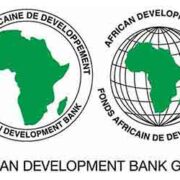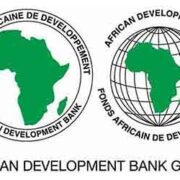Background
UN Women, grounded in the vision of equality enshrined in the Charter of the United Nations, works for the elimination of discrimination against women and girls; the empowerment of women; and the achievement of equality between women and men as partners and beneficiaries of development, human rights, humanitarian action and peace and security. UN Women’s office in Nigeria works to advance implementation of the agency’s normative, operational and coordination mandate, in close partnership with the Government of Nigeria, the United Nations Country Team and civil society organizations. The UN Women Nigeria Country Office prioritizes women’s economic empowerment as one of its core programmatic areas of focus. UN Women’s efforts to enhance women’s economic empowerment in the recent past has included support to women entrepreneurs, facilitating women’s financial inclusion, and supporting women in agricultural activities.
Nigeria has one of the highest numbers of female entrepreneurs in the world. Yet, women-owned businesses do not secure procurement contracts, suggesting systematic gender disparities in the procurement systems of both government and private sector organizations. The consensus on the positive correlation between gender equality and the socio-economic environment of a country calls for incentives to ensure equal opportunities for women entrepreneurs and their male counterparts, for instance in the form of preferential treatment for marginalized groups when it comes to procurement of goods and services. The project: Women’s Economic Empowerment through Affirmative Procurement Reform in West and Central Africa was launched to support women’s economic empowerment through enhanced opportunities of women-led businesses to access public procurement and corporate supply chains. The project integrates affirmative procurement initiatives in the context of COVID 19 response and recovery strategies. It supports reform and institutional strengthening to improve women-led businesses access to public procurement and supports the development of gender responsive procurement initiatives as part of the COVID-19 response strategies. It was designed as a catalyst to support enabling environment for women to work and be financially independent as well as enhance capacities of government officials to formulate and implement gender responsive policies. Gender-responsive policies are crucial to achieving sustainable development, as they enable women and girls to participate fully in and benefit equally from socioeconomic opportunities. address the underlying causes of vulnerability including gender inequality.
Within the project, UN women has supported review of a number of legal frameworks which promotes economic stability of business women, these includes: the Women Economic Empowerment Policy, Gender Responsive Procurement Policy of Lagos State, Nigeria and many others, in order to ensure sustainability of the project in Lagos States as well as monitoring the progress on implementation of the different policies in the State, there is a need to establish a robust team comprising of women leaders in this thematic area to provide strategic leadership in driving the advocacy and monitoring government interventions targeted at women’s economic empowerment especially as relate to promoting social capital and women’s entrepreneurial growth in the state.
In line with the UN Women’s coordination mandate and as part of a project exit strategy, the coalition will work with existing state institutions to push for approval of the state policies, monitor government interventions and promote the economic rights of women entrepreneurs in the state. Also, the coalition would be expected to push for the domestication of available legal frameworks that support women’s economic empowerment in the state. The coalition will, in turn, serve as key connectors to government and businesses and help to create a strong enabling environment for civil society organisations, democracy, and the rights of citizen action and participation.
Specifically, the coalition will focus on the following actions:
Duties and Responsibilities
Description of Responsibilities/ Scope of Work
Deliverables
|
Key deliverables |
Activities |
|
Affirmative Procurement |
|
|
Domestication of National Policy on Women Economic Empowerment and Action Plan |
|
|
Development of Care Policy in Lagos |
|
|
Unstreotype Alliance and WEPs |
|
|
Implementation Reports |
|
|
Final Report |
|
Development Objective
To enhance the socio-economic empowerment of women in Lagos State through the approval and domestication of key policies, including the Affirmative Procurement Policy, the National Policy on Women’s Economic Empowerment and Action Plan, and the development of a Care Policy, thereby fostering an inclusive and supportive ecosystem for women’s economic participation and well-being.
Immediate objective
To secure the approval and domestication of the Affirmative Procurement Policy, the National Policy on Women’s Economic Empowerment and Action Plan, and the development of a Care Policy in Lagos State through targeted advocacy campaigns and strategic engagement with relevant government institutions.
Outputs
Under the direct guidance and overall supervision of the Programme Specialist, Women Economic Empowerment, the National Consultant will undertake the tasks outlined in the section five below. To facilitate delivery of the above outputs, UN Women will provide consultant with available documents as well as relevant templates.
|
Deliverable |
Expected completion time (due day) |
|
Achieve the official approval and implementation of the Affirmative Procurement Policy in Lagos State by January 2025 |
August 2024 – January 2025 |
|
Facilitate the domestication of the National Policy on Women’s Economic Empowerment and Action Plan in Lagos State by January 2025 |
August 2024 – January 2025 |
|
Establish commitment for a comprehensive Care Policy in Lagos State that addresses the needs of caregivers and supports the care economy by January 2025 |
August 2024 – January 2025 |
|
Promote the adoption of the Unstereotype Alliance and the Women’s Empowerment Principles (WEPs) among businesses and institutions in Lagos State, with at least 10 new members by January 2025 |
August 2024 – January 2025 |
|
Implementation Reports |
August 2024 – January 2025 |
Competencies
Core Values:
- Respect for Diversity
- Integrity
- Professionalism
Core Competencies:
- Awareness and Sensitivity Regarding Gender Issues
- Accountability
- Creative Problem Solving
- Effective Communication
- Inclusive Collaboration
- Stakeholder Engagement
- Leading by Example
Please visit this link for more information on UN Women’s Core Values and Competencies:
https://www.unwomen.org/en/about-us/employment/application-process#_Values
Functional competencies:
Knowledge Management and Learning
- Shares knowledge and experience
- Seeks and applies knowledge, information, and best practices from within and outside UN Women
- Actively works towards continuing personal learning and development in one or more practice areas, acts on learning plan and applies newly acquired skills.
- Development and Operational Effectiveness
- Demonstrates excellent written and oral communication skills. Communicates sensitively, effectively and creatively across different constituencies.
- Demonstrates very good understanding of and experience in communications and outreach/advocacy.
- Ability to perform a variety of standard specialized and non-specialized tasks and work processes that are fully documented, researched, recorded and reported.
- Ability to review a variety of data, identify and adjust discrepancies, identify, and resolve operational problems.
- Uses Information Technology effectively as a tool and resource.
Leadership and Self-Management
- Focuses on result for the client and responds positively to feedback.
- Consistently approaches work with energy and a positive, constructive attitude.
- Remains calm, in control and good humored even under pressure
- Proven networking skills and ability to generate interest in UN Women’s mandate.
- Identifies opportunities and builds strong partnerships with clients and partners.
Required Skills and Experience
Education and Certification:
- A degree in Development studies, international relations, administration, human resource management, public policy, or other social science fields is required.
Experience:
- At least 4 years of solid, relevant professional experience in managing Women’s coalitions or women’s movements. – 30 points
- Proven track record of successfully managing multi-stakeholder initiatives, particularly in the non-profit or women’s advocacy sectors. – 30 points
- Experience leading and motivating teams, fostering collaboration among diverse groups, and driving strategic initiatives. – 20 points
- Experience in advocacy and policy influence related to women’s economic empowerment and overall gender equality—10 points.
- Demonstrated ability to engage with various stakeholders, including government bodies, non-governmental organisations (NGOs), community-based organisations (CBOs), and international agencies. – 5 points
- Excellent written and oral communication skills in English. – 5 points
Languages:
- Fluency in English is required
How to Apply
The above-mentioned documents should be merged in a standalone file including all them, since the online application submission does only permit to upload one file per application. Incomplete submission can be a ground for disqualification.
Qualified women and men and members of minorities are encouraged to apply. UN Women applies fair and transparent selection process that would take into account the competencies/skills of the applicants as well as their financial proposals.
Notes:
In July 2010, the United Nations General Assembly created UN Women, the United Nations Entity for Gender Equality, and the Empowerment of Women. The creation of UN Women came about as part of the UN reform agenda, bringing together resources and mandates for greater impact. It merges and builds on the important work of four previously distinct parts of the UN system (DAW, OSAGI, INSTRAW, and UNIFEM), which focused exclusively on gender equality and women’s empowerment.
Diversity and inclusion:
At UN Women, we are committed to creating a diverse and inclusive environment of mutual respect. UN Women recruits, employs, trains, compensates, and promotes regardless of race, religion, color, sex, gender identity, sexual orientation, age, ability, national origin, or any other basis covered by appropriate law. All employment is decided based on qualifications, competence, integrity, and organizational need.
If you need any reasonable accommodation to support your participation in the recruitment and selection process, please include this information in your application.
UN Women has a zero-tolerance policy on conduct that is incompatible with the aims and objectives of the United Nations and UN Women, including sexual exploitation and abuse, sexual harassment, abuse of authority, and discrimination. All selected candidates will be expected to adhere to UN Women’s policies and procedures and the standards of conduct expected of UN Women personnel and will therefore undergo rigorous reference and background checks. (Background checks will include the verification of academic credential(s) and employment history. Selected candidates may be required to provide additional information to conduct a background check.)








Comments